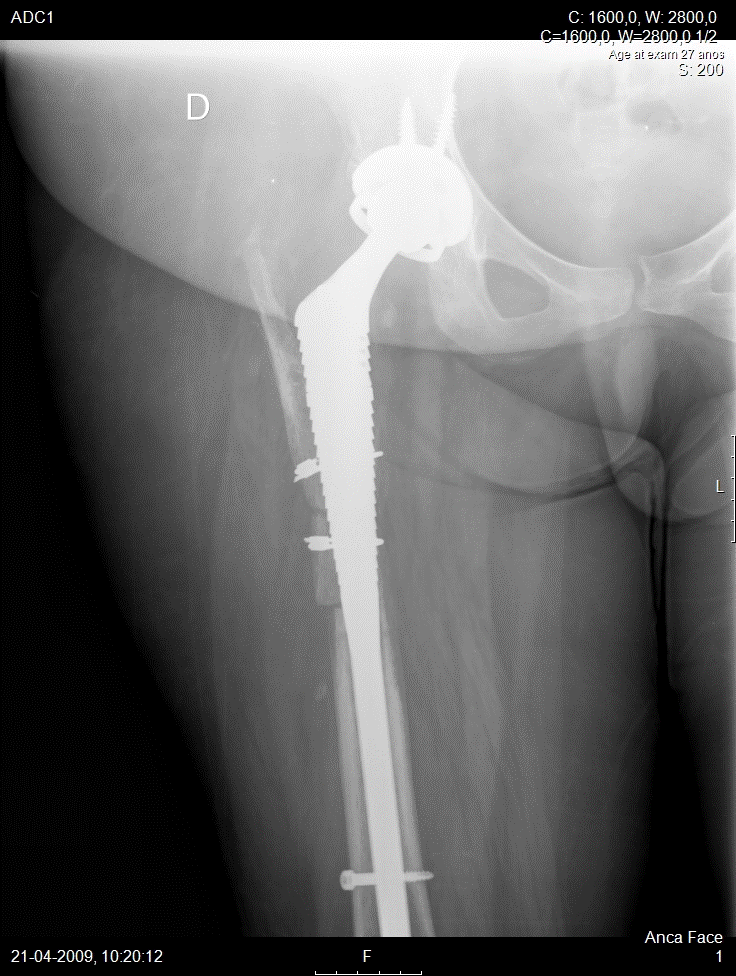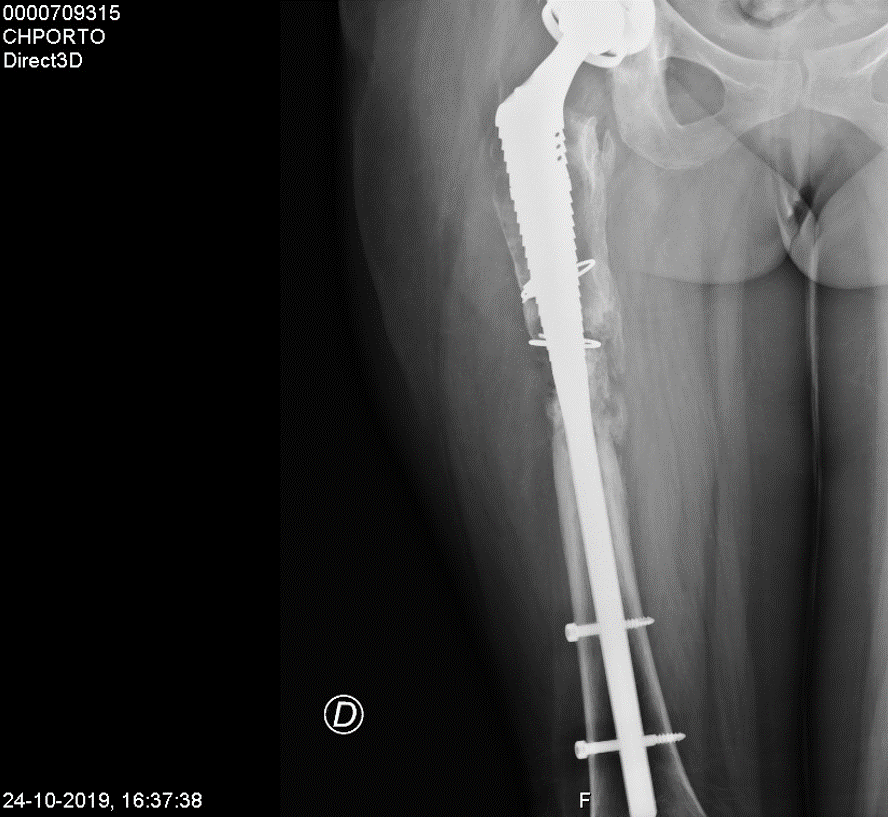Although obesity is considered epidemic nowadays, it isn’t synonymous of good nutritional state.1-4 Malnutrition is common in these patients, with high caloric but low nutritive meals.1,2 Those deficits may be even more evident in patients submitted to bariatric surgery.1 Vitamin D deficit is common, as it’s sequestered and diluted in adipocytes, proportionally to the adipocytes mass, and lower activity because of less sun exposure and less hepatic activation in the presence of non-alcoholic steatohepatitis.1,3-5
A 24 years-old woman placed a gastric band in 2007 for morbid obesity. She lost 20kg during the first month, 60kg in less than six months, and was lied for most of time. At the end of 2008, she pathologically fractured her right femur, and was diagnosed with severe osteomalacia, with serious femur reabsorption. She needed a total femur prosthesis (Fig. 1) and moved only on wheelchair. In 2013, she was referred to our clinic. Parathormone was 97UI/mL (normal values 15-60UI/mL) and 25-hydroxycalciferol was undetectable. Primary hyperparathyroidism was excluded.She started high doses of vitamin D (1mg per week for 8 weeks and then 0.5mg per week), and calcium (1000mg per day) supplements, as well as vitamin K supplementation (10mg intravenously, once monthly, in two subsequent months), and after two years she was able to walk again free of pain.Ten years later, the X-ray showed remarkable anatomical ossification of the femur around the prosthesis (Fig. 2).
Osteomalacia in this patient was multifactorial: obesity inhibits physical activity and sequesters liposoluble vitamin D, and bariatric surgery promotes its malabsorption, preventing its function in bone metabolism.
Figura I

Radiography right after total femur replacement.
Figura II

Radiography 10 years after total femur replacement, with appropriated calcium, vitamin D and vitamin K supplementation.
BIBLIOGRAFIA
1. Xanthalos, SA.Nutricional deficiencies in obesity and after bariatric surgery.Pediatr Clin N Am 56 (2009): 1105-21.
2. Thibault R, Huber O, Azugury DE, Pichard C.Twelve key nutricional issues in bariatric surgery.Clinical Nutrition 35 (2016): 12-17.
3. Chakhtoura MT, Nakhoul NN, Shawwa K, Mantzoros C, Fuleihan GAEH. Hypovitaminosis D in bariatric surgery: A systematic review of observational studies.Metabolism clinical and experimental 65 (2016): 574-85.
4. Gregory NS.The effects of bariatric surgery on bone metabolism.Endocrinol Metab Clin N Am 46 (2017): 105-16.
5. Peterson LA, Zeng X, Caufield-Noll CP, et al.Vitamin D status and supplementation before and after bariatric surgery: a comprehensive literature review.Surgery for Obesity and Related Diseases 12 (2016): 693-704.



